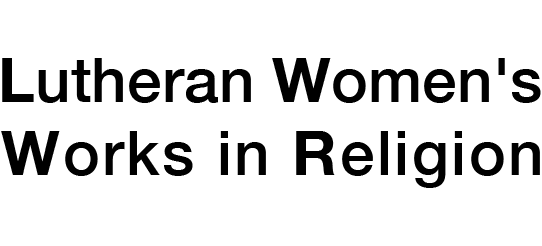Bibliography Author: Deanna Thompson
THEOLOGY
Deanna Thompson "Letting the World Run Free: Luther, Romans, and the Call to Reform" In Reformation Readings of ROmans. T&T Clark 2008This article examines how Luther‘s early theology mines the resources of Romans to advocate for a theology of freedom and how that message reaches the masses more through preaching than his theological treatises.
THEOLOGY
Deanna Thompson "Martin Luther" In Empire and the Christian Tradition. Minneapolis: Fortress Press 2007This chapter is a biography of Martin Luther as seen through the lens of the politics of empire. I suggest that Luther‘s reimagining of religious freedom leads to a theology of resistance with respect to ecclesial and imperial authorities of the day, a theological perspective that unfortunately Luther himself does not always follow.
THEOLOGY
Deanna Thompson "The Cross, Friendship, and Empire" In Being the Church in the Midst of Empire: Trinitarian Reflections. ed. Bloomquist, Karen. Minneapolis: Lutheran University Press 2007This article utilizes my work on reimagining Christian vocation in terms of friendship rather than servanthood. I suggest that even though friendship seems too mundane a relationship to resist the politics of empire, it can be a surprisingly powerful mode of relation for cross-cultural connection and resistance to the powers that be, both within and outside of the church.
THEOLOGY
Deanna Thompson "Becoming a Feminist Theologian of the Cross" In Cross Examinations. Minneapolis: Fortress Press 2006This article is a condensed version of argument made in Crossing the Divide.
THEOLOGY
Deanna Thompson Crossing the Divide: Luther, Feminism and the Cross., Minneapolis: Fortress Press 2004Equally committed to the insights of Luther‘s theology of the cross and feminist theology, I seek in this book common ground on issues of suffering, abuse, atonement, reform, ethics, and the import of Jesus, all of which culminates in a constructive proposal for a feminist theology of the cross.
THEOLOGY
Deanna Thompson "Luther, Feminism, Friendship and the Future" Fall In Dialog: A Journal of Theology. 2010This article recounts my journey of becoming a Lutheran feminist theologian. Drawing on insights from both Lutheran and feminist traditions, I propose a shift in Christian vocation imagery from that of servant to friend, arguing that the call to friendship includes subverting global structures of domination. I end with an invitation to join the expanding conversation about how Lutheran and feminist frameworks address the needs of our contemporary world.
THEOLOGY
Deanna Thompson "The Trouble with Miracles; Word Wrangling; Embraced by the Virtual Body of Christ" Summer-Fall In Working Preacher. 2010 http://www.workingpreacher.org/contributor_detail.aspx?author_id=237These articles represent attempts to think theologically about living with stage IV cancer.
THEOLOGY
Deanna Thompson "Hoping for More" Fall In Faith and Leadership (Duke University website). 2010 http://faithandleadership.com/content/hoping-for-moreThis article addresses the challenge of hoping for more—both in this life and the next—while facing a stage IV cancer diagnosis.

